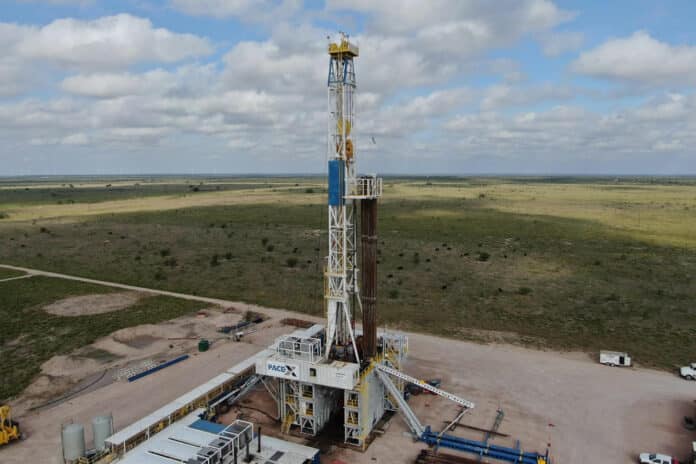Houston-based geothermal baseload and energy storage company Sage Geosystems has announced significant results and data from its full-scale commercial pilot confirming the performance of its energy storage system, EarthStore, which can provide short- or long-term storage.
The results show that Sage’s technology is cost-effective with lithium-ion batteries, pumped storage hydropower, and natural gas peaker plants.
Field results in 2022/2023 and extensive data analysis in 2023 confirmed that Sage can provide 18 hours or more of storage capacity when combined with solar or wind generation to generate 24/7 baseload power effectively.
Field results also demonstrated that Sages can alternatively provide high-power, short-duration power (load-following) during peak demand.
Both storage intervals, long and short duration, increase grid reliability with stable power output. Additionally, heat from formation expands the fluid downhole and improves round-trip efficiency (RTE).
The Sage data set was obtained by pumping and flowing back water from their wells to measure the capacity and power duration. No induced earthquakes were measured during fracturing or subsequent pumping operations.
Sage’s energy storage design is ready to scale and not geographically limited. In addition, it can be used in newly drilled wells and existing oil and gas wells. The flexibility of their storage can provide well-timed flows to move energy for both short- and long-term periods of the day (or week or longer) where demand is low at other times when demand is high.
Results based on Levelized Cost of Storage (LCOS) showed that Sage’s energy storage could provide electricity at a lower cost than lithium-ion battery storage and conventional pumped storage hydro.
It is competitive with natural gas peaker plants, providing a clean alternative to providing auxiliary services, black start services, and redistributing less energy during peak demand periods.
EarthStore is Sage’s mechanical energy storage technology that harvests the pressure energy of fluids and is also enhanced by heat from formation.
- Sage’s commercial pilot has produced 200kW for over 18 hours and 1MW for 30 minutes, limited only by small-diameter rental surface equipment piping.
- The commercial pilot has generated electricity with Pelton turbines to power equipment on location.
- It has measured subsurface system efficiencies between 88-94%, with an estimated round-trip efficiency (RTE) of 70-75%.
- The heat from the formation expands the downhole fluid and improves RTE.
- Sage’s commercial pilot measured fluid loss at less than 2%, decreasing to 1% at the end of five weeks.
- The commercial pilot has demonstrated the potential to generate 2-3MW net output from a single well.
- Sage’s pilot has calculated LCOS that is cost-competitive to pumped storage hydropower and lithium-ion batteries.
“We have cracked the code to provide the perfect complement to renewable energy, yielding reliable alternative baseload in a manner that is cost competitive with lithium-ion batteries and natural gas peaker plants,” said Cindy Taff, CEO of Sage Geosystems. “The opportunities for our energy storage to provide power are significant – from remote mining operations to data centers to solving energy poverty in remote locations. We can interconnect with power grids or develop island/microgrids with a cleaner energy solution that is proven and ready to scale.”
Sage’s Enhanced Geothermal Systems (EGS) geothermal well design uses all the same technology as their energy storage systems.
Their unique EGS well design is half the cost of an EGS two-well system, and their supercritical CO2 turbine can produce more energy than conventional turbines currently used in geothermal.
Sages harvest heat from the downhole fluid and remove pressure, significantly increasing system efficiency.
Sage Geosystems will present its energy storage pilot results at the PIVOT 2023 conference.
